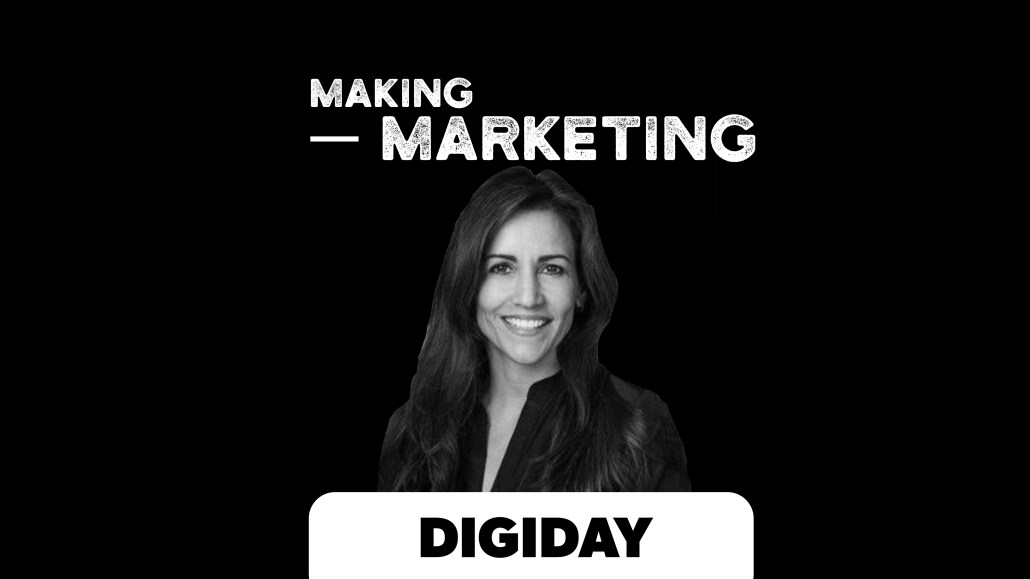Secure your place at the Digiday Media Buying Summit in Nashville, March 2-4

Subscribe: iTunes | Google Play | Stitcher | RSS | Anchor
Brand purpose has become the go-to phrase for chief marketing officers. Stephanie Buscemi, CMO at Salesforce, claims brand purpose is imperative for every brand and it’s even expected by the employees.
“Specific to tech, there is a trust crisis,” said Buscemi on this week’s episode of the Making Marketing podcast. “It’s a big focus to restore trust. Research shows 90% of consumers will stay loyal to a brand they trust. Not only is it about doing good, but it’s imperative for your business to do well. Every company has a responsibility to make a positive impact in the world, whether through social values or environmentalism or however they choose. The challenge is how that is done, especially how marketing shows up. It cannot just be talk. There have to be initiatives across the company.”
Buscemi discusses how brand purpose applies to Salesforce, how the company interacts with agencies and more. Edited highlights appear below.
Focusing on engagement instead of reach will set the right priorities.
“Metrics matter but it’s about changing the metrics set. You cannot manage what you cannot measure. B-to-B marketers have been heavily [focused] on leads [as a metric.] Leads are important and they’re a key indicator of revenue and revenue growth. But they’re not the only indicator. There are many other metrics related to engagement. On social, it’s not just followers. Reach is going out of fashion. But how are people engaging with your brand? Focusing on engagement and not just leads, [encourages] the right behavior and the marketer listens to the market’s needs and interact with them to create content with the customer.”
Events remain a powerful marketing channel.
“The majority of [marketing expenses] go into content production and syndication on different channels. We do rich events for our customers, one of which is Dreamforce. There’s associated costs in activations and online experience. The benefit of Dreamforce far exceeds the revenue impact. It’s a community of our customers, our employees and our huge partner ecosystem. It is the ultimate feeding ground for new content and new thinking. At the end of Dreamforce, we think about the most meaningful conversations and what resonated the most. We package that into a single day and take it to over 12 markets around the world and bring those stories to people who can’t get there.”
The interaction with agencies has changed.
“The way we engage with agencies is different than how it was three to five years ago. The conversation has expanded to include things like business values. It [was] may be a review of the core capabilities of the agency. Now, we spend more time understanding the management team of the organization, the values of the company and how do they interact. They’re an extension of our brand when we interact together. There’s more due diligence there.”
More in Marketing

WTF are tokens?
When someone sends a prompt or receives a response, the system breaks language into small segments. These fragments are tokens.

AI is changing how retailers select tech partners
The quick rise of artificial intelligence-powered tools has reshaped retailers’ process of selecting technology partners for anything from marketing to supply chain to merchandising.

YouTube’s upmarket TV push still runs on mid-funnel DNA
YouTube is balancing wanting to be premium TV, the short-form powerhouse and a creator economy engine all at once.








